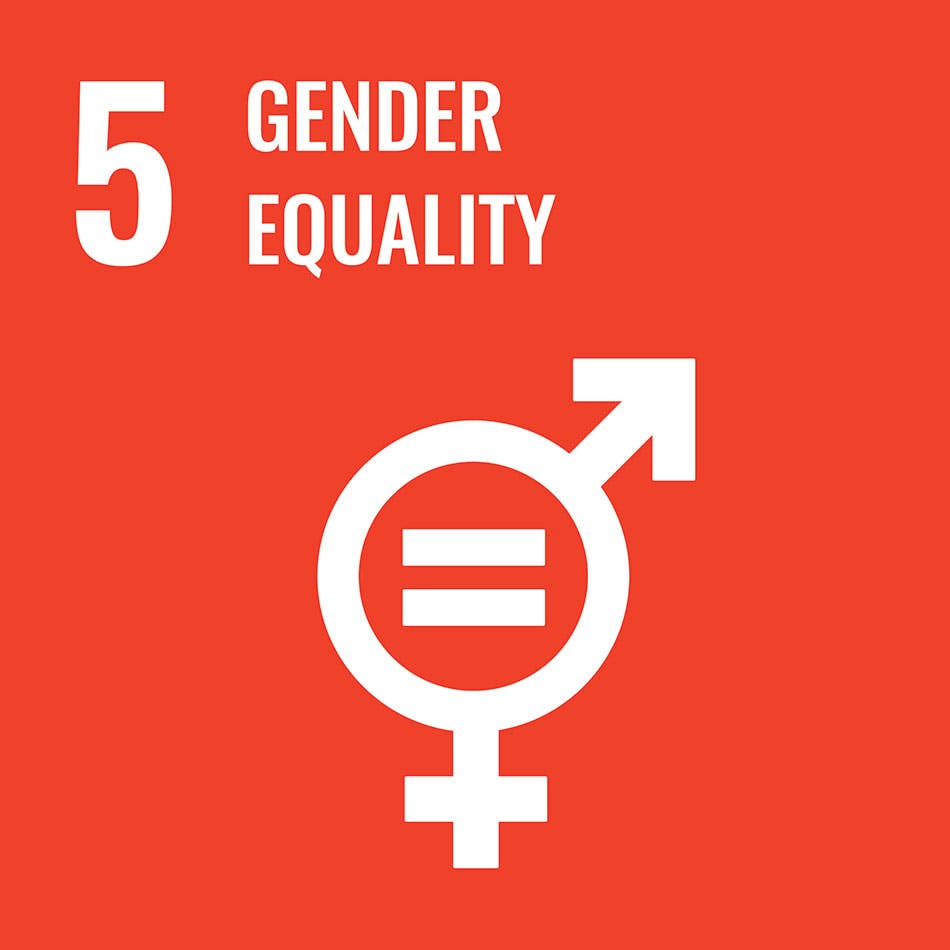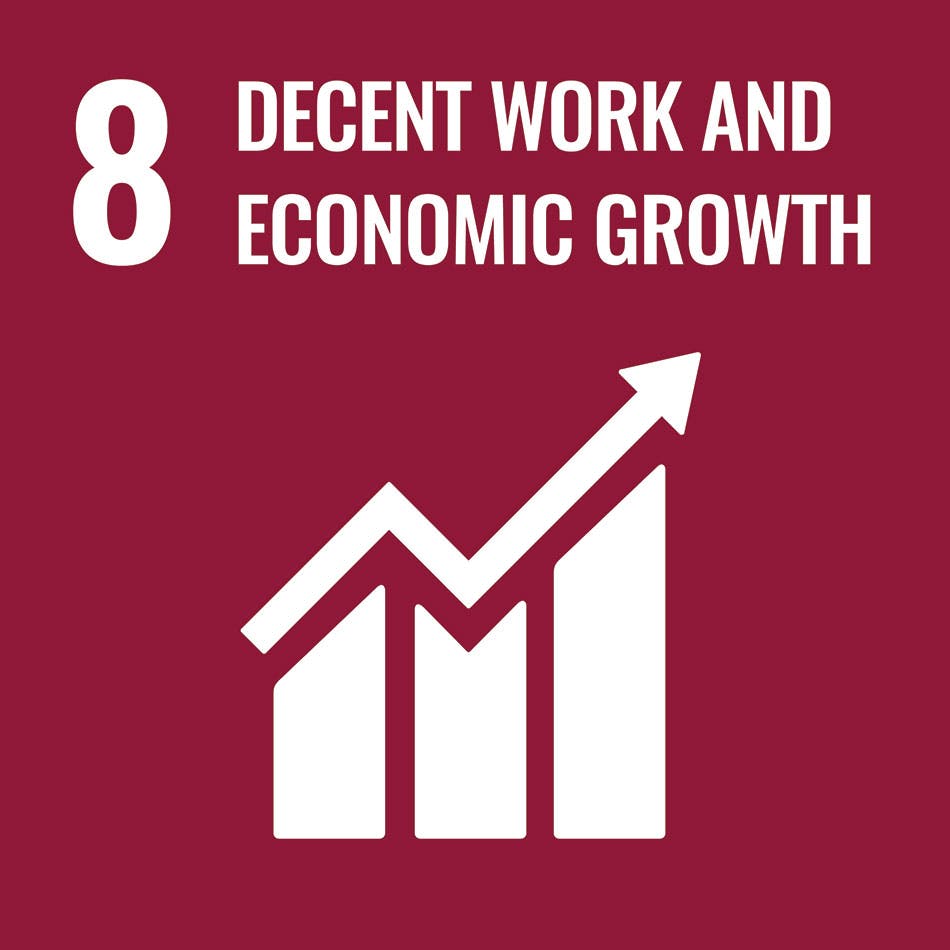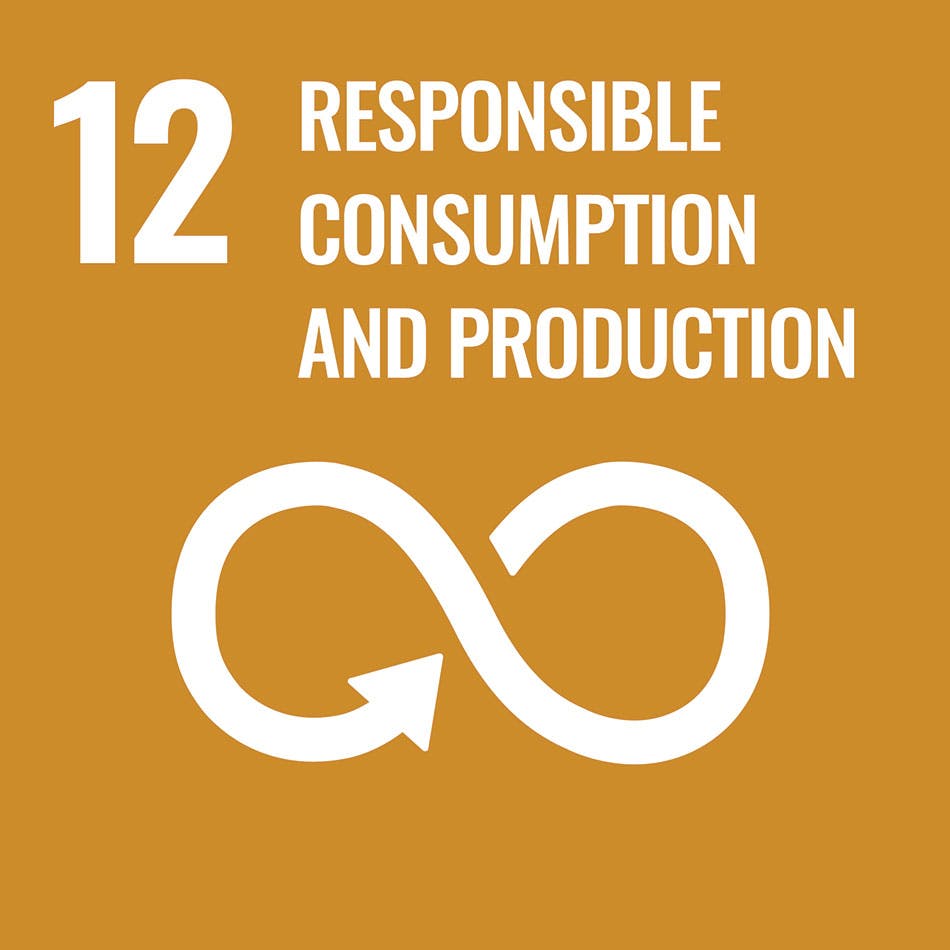Joint effort for sustainability
We wish to contribute to sustainability and be a dynamic force in Icelandic society. In 2020, we enthusiastically continued our sustainability journey. We were pleased to receive excellent results in ESG risk ratings in 2020, reviewing our work on environmental, social and governance matters.
Policy on sustainability
Landsbankinn's policy is to contribute to sustainability in Iceland, to be a dynamic force for action and operate in accordance with the principles of good corporate governance.
We take the initiative to form partnerships with companies, institutions and organisations to develop economic activity and infrastructure which will contribute to increased sustainability in Icelandic industry and community with the aim to utilise as best as possible the available opportunities for the maximum future benefit of Icelanders and Iceland. Together we can create new business opportunities that emphasise sustainability.
SDGs a part of sustainability policy
We follow three of the UN’s sustainable development goals especially: Goal 5 on gender equality, goal 8 on decent work and economic growth, and goal 12 on responsible consumption and production, etc. These goals all directly correlate with the Bank’s operation and work to achieve them maximises the Bank’s positive impact on the environment and society.
Landsbankinn also follows the Principles for Responsible Banking (PRB) intended to align banking activity with the UN’s Sustainable Development Goals (SDG) and the Paris Agreement.



Principles for Responsible Banking
Leader in Europe and Iceland
In a new ESG risk rating from Sustainalytics in 2020, we ranked 2nd of the 382 banks operating in Europe and reviewed by Sustainalytics. An ESG risk rating evaluates a company’s performance in environmental, social and governance and assigns a rating grade. Sustainalytics is an international rating agent and analyst, leading in ESG risk ratings. The review is comprehensive and based on the Bank’s entire operation
In September, we also received an excellent risk rating from Reitun, placing Landsbankinn in the A category.
The results of both these risk assessments is a welcome confirmation of the successes the Bank has achieved in its hard work towards sustainability. A good ESG risk rating also has financial benefits as it paves the way to more favourable funding for banks.
New sustainable finance framework
In 2020, we worked on our initial sustainable finance framework, which was published in January 2021. The framework broadens our scope for financing green and social projects, such as switching to renewable energy, developing environmentally-friendly infrastructure and sustainable fisheries.
The framework has been reviewed by international rating agency Sustainalytics, a leader in the field of ESG ratings. It sets out clear criteria for the definition of sustainable projects and ensures transparency. Around 30% of the Bank’s lending portfolio already fits the parameters of the framework. The framework is based on ICMA’s guidelines and the EU’s recent taxonomy for sustainable financing, which is expected to become the standard in sustainable finance. The framework was developed by an interdisciplinary group of the Bank’s experts.
PCAF - first carbon accounting method for banks
We are proud to have participated in the development of the first global standard to measure and report financed emissions, launched by PCAF in November. In 2019, we participated in the international Partnership for Carbon Accounting Financials (PCAF), which aimed to develop a dedicated way of measuring and reporting GHG emissions tied to lending and investment activities. This marks a certain milestone in work towards sustainability for financial institutions as a common methodology and standard to measure their indirect impact has not been available before. With the PCAF standard, we now have a tool to assess this indirect impact systematically and effectively.
Full steam forward in responsible investment
In 2020, we continued our systematic implementation of a policy on responsible investment. We have long been actively engaged in this process and consider it of high importance to fully integrate sustainability concerns in core operations.
Landsbankinn's policy on responsible investment is set having regard for the United Nations' Principles on Responsible Investment, of which Landsbankinn is a member since 2013. We are also a member of UN PRB, the UN Global Compact and a founding member of IcelandSIF.
The policy reflects work practices that have been shaped in recent years, as well as the challenges the future holds. The next step is to also integrate ESG issues in the process of investment decisions in a structured manner, both as relates to listed and unlisted equities and bonds. Part of that undertaking is ensuring access to independent evaluations and the Bank has concluded agreements with Reitun, for domestic issuers, and Morningstar,for international issuers.
The business environment is changing and a company's stance on sustainability affects risk assessment and the evaluation of growth opportunities. Integration of environmental, social and governance (ESG) factors in the investment decision process has a positive impact on return on investment in the long term and reduces operational risk. As regards responsible investment, our practices build on active communication whereby exclusion is a rare exception.
Expertise in sustainable bonds
We have developed expert knowledge of sustainable bonds whereby funding is channelled to eco-friendly and social projects. Landsbankinn co-ordinated the issuance of green bonds by Municipality Credit Iceland, which concluded successfully in February 2020. For the first time in Iceland, green bonds were issued at better terms than traditional bonds issued at the same time, demonstrating that investors are engaged and willing to participate in projects run on the sustainability platform.
Green bonds allow for the financing of environmentally friendly projects. Interest in green bonds has increased steadily in Iceland in recent years, in line with exploding interest abroad. We have endeavoured to build knowledge of so-called sustainable bonds, i.e. green bonds, red bonds (issued to fund social commitments) and blue bonds (issued to finance ocean-friendly projects).
Environmental issues
Our impact on the environment is covered in detail in the chapter titled Carbon footprint.
Landsbankinn a model of good governance
We intend to be a model of good corporate governance and comply with guidelines issued by Nasdaq Iceland, the Iceland Chamber of Commerce and the Confederation of Icelandic Employers. Landsbankinn has been a model of good governance since 2014, as determined by a review of the its governance practices.
Strong emphasis on cybersecurity
Cybersecurity is one of our top concerns. We consider wide-reaching education and training on cybersecurity to be part of our social responsibility. We participate in various collaborations with organisations and institutions in the field, both in Iceland and abroad. In 2020, the Bank’s experts were active participants in debate about these issues, providing instruction to companies and publishing accessible educational material published to Umræðan and to social media.
Detailed ESG report
This is our tenth ESG report, with detailed coverage of sustainability and the Bank’s impact on the environment and society. For the first time this year, we are combining our ESG and annual reports. We have prepared the report in accordance with the GRI Standards: Core option and it also functions as a Communication of Progress report to the UN Global Compact. Landsbankinn will continue to support the Global Compact and adhere to its guidelines.
Partnering up for sustainability
Declaration of Intent on Funds for the Maintenance of Sustainable Development
In November 2020, we signed a joint declaration of the Icelandic Financial Services Association, Festa, the National Association of Pension Funds, and the Prime Minister’s Office, prepared in active collaboration with key stakeholders in the financial market.
Festa, Centre for Corporate Social Responsibility
We were a founding member of Festa in 2011.
UN Global Compact
We have been a member of the UN Global Compact since 2006.
UN Principles for Responsible Investment
UN PRI is an association of investors, funds and analysts that aims to include environmental, social and governance (ESG) criteria in investment decisions.
UN Environment Programme Finance Initiative
We were among the founding members of UNEP-FI in 1992.
Iceland Sustainable Investment Forum (IcelandSIF)
We were a founding member of IcelandSIF in 2017. The objective of IcelandSIF is to promote awareness among investors of the methodology of sustainable and responsible investment and to boost debate.
Paris Climate Agreement
In 2015, we signed a declaration on climate issues, joining over a hundred Icelandic companies and institutions in a collaborative venture of the City of Reykjavík and Festa.
Principles for Responsible Banking
In 2019, we committed to implementing and complying with the Principles for Responsible Banking (PRB). They are intended to link banking with the UN’s SDGs and the Paris Climate Agreement.
Platform Carbon Accounting Financials (PCAF)
In 2019, we joined PCAF and participated in the development of a harmonized approach to assess and disclose greenhouse gas (GHG) emissions. The carbon accounting method is intended to allow financial undertakings to measure and analyse emissions from their credit and asset portfolios.
GRI Standards index and accompanying documents
By clicking "Allow All", you agree to the use of cookies to enhance website functionality, analyse website usage and assist with marketing.